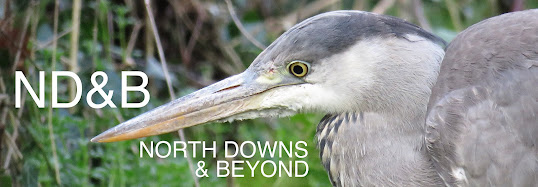In a world of wounds
In George Monbiot's latest post (click here), he writes:
To understand what is happening to the living planet, the great conservationist Aldo Leopold remarked, is to live “in a world of wounds … An ecologist must either harden his shell and make believe that the consequences of science are none of his business, or he must be the doctor who sees the marks of death in a community that believes itself well and does not want to be told otherwise.”
In my ignorance, I have only vaguely heard of Aldo Leopold. I was intrigued to see from where this quote was taken. It comes from his book 'A Sand County Almanac' and was published in 1949.
I had to read that date of publication again. 1949. The quote seems so fresh, so now. It only goes to prove that the realisation that our planet is not well because of the hand of man is not a modern phenomena. It's just that, in the intervening years since Mr. Leopold's observation, very few of those in a position to do so have done much to alleviate the planet's ailing health.
To understand what is happening to the living planet, the great conservationist Aldo Leopold remarked, is to live “in a world of wounds … An ecologist must either harden his shell and make believe that the consequences of science are none of his business, or he must be the doctor who sees the marks of death in a community that believes itself well and does not want to be told otherwise.”
In my ignorance, I have only vaguely heard of Aldo Leopold. I was intrigued to see from where this quote was taken. It comes from his book 'A Sand County Almanac' and was published in 1949.
I had to read that date of publication again. 1949. The quote seems so fresh, so now. It only goes to prove that the realisation that our planet is not well because of the hand of man is not a modern phenomena. It's just that, in the intervening years since Mr. Leopold's observation, very few of those in a position to do so have done much to alleviate the planet's ailing health.


Comments
Leopold basically argues that we have systems of ethics regarding humans, animal welfare, property etc but not one for the fauna, flora, the air, the soil etc. He tries to recommend some ethic for this entity that was hitherto seen either as inconsequential or as common property - "A thing is right when it tends to preserve the integrity, stability, and beauty of the biotic community. It is wrong when it tends otherwise." Modern ecologists would almost certainly argue about the stability bit depending on how it's interpreted, and the beauty bit is very subjective but it is the integrity of the biota that's really important.
So in response to Ali's point, I think we have to accept we're sapient (which makes the difference), that we want to preserve ourselves and maximise our pleasure; and that we rely on the environment for survival. The situation of the ecologist is that he can see the damage being done to the latter - the loss of integrity - but no one is interested in doing anything about it if the cost of dealing with it includes some relative discomfort. I don't think there's an easy way to deal with this disconnect as it's very much a part of human nature but perhaps more widely instilling a "land ethic" would help.